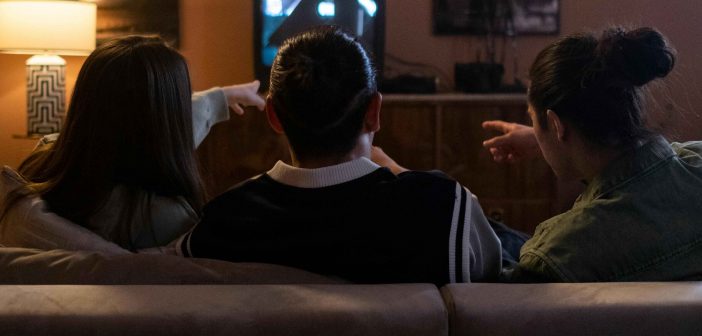Reality TV- a scandalous rapture in my household. With it, any fragment of real life is always enough for us to feel connected with the cast. But is it connection, or catharsis?
My housemates and I watch ‘Married at First Sight UK’. I laugh and say “What a nasty man. Can’t she just marry someone else afterwards?”, with another couple: “Oh wow, I feel so sorry for him- his new wife is awful.” But there is always a subtext much louder than our laughter that echoes through the house. In between each gasp for air, you can hear, “at least no one feels sorry for me. That would be awful,” being communicated non-verbally. From what I’ve seen, many elements of reality TV are fictional, but it offers viewers a catharsis more powerful than purely fictional TV.
I indulge in a ghastly episode of ‘Gordon Ramsay’s Kitchen Nightmares’. He shows a vile cluster of mossy build-up on a chicken breast. What nasty restaurant owners. Why would they do something like that? Think of the customers. But it’s strangely interesting to point my finger at while eating, because if my chicken is ever dry, at least it’s not mouldy. I also don’t know what it’s like to have any customers. So naturally, I love judging people who do. “This is how I should spend this hour,” I think. Pointing away from myself, my dirty stove, the dishes in the sink, the dust on the kitchen floor. I realise that reality TV is a guilt-free way of projecting whatever shame follows us around the house. But is anything I watch real?
According to a claim made to Metro Magazine by a representative of the show ‘Love Island’, “As anyone who watches the show regularly would know, Love Island is a combination of reality and produced elements that are reflective of what’s happening in the villa.” They refer to the show as a “fair and accurate representation of villa life.” However, people from multiple shows reveal the reality of ‘reality’. One former ‘Love Island’ contestant told The Mail that “People don’t realise how scripted it is, how much the producers influence it. It is very disingenuous… we were treated like performing animals and the current cast are still.” Apparently, producers cultivate specific situations to raise emotional tension in the villa. Contestants Jack Fowler and Georgia Steele shared what Daisy Jordan calls an “awkward kiss”. One contestant alleges that it was filmed “three or four times” to shoot it correctly. “Awkward” implies Jordan had an emotional response. Similar to that in my household when we watch ‘Married at First Sight UK’. The knot of cringe thrashing in our stomachs when that one husband gives his wife a Kubrick stare and asks her for one smooch. So reality TV offers a rush of superiority for us. “No one wants to chew on my face like that. What a relief.”

Credit: ITV/Lifted Entertainment
These people are characters. However, Grazia magazine also lists the top ten ‘Love Island’ couples who are still together. 17 out of 89 restaurants from ‘Ramsay’s Kitchen Nightmare’s are still open. This fabricated cringe can allow whatever catharsis we want. But the fact that these are real people allows for the catharsis to feel more genuine. The subreddit r/KitchenNightmares centres around Ramsay’s show. On a post criticising how fake it is, user ItsAShell_Game writes that because of the decline in quality as the seasons go on, “I’m not as invested in the people, the episodes do seem shorter, the style of editing does seem a lot different’. If parts of the show aren’t exaggerated, it clearly makes for a less interesting narrative. My housemates and I do not want to see every part of a person’s life. But it seems like the exaggerated parts are only there to intensify the real events in these people’s lives. In these shows, the stakes are higher because of real and scripted elements. It’s not purely one or the other- we feel more.





